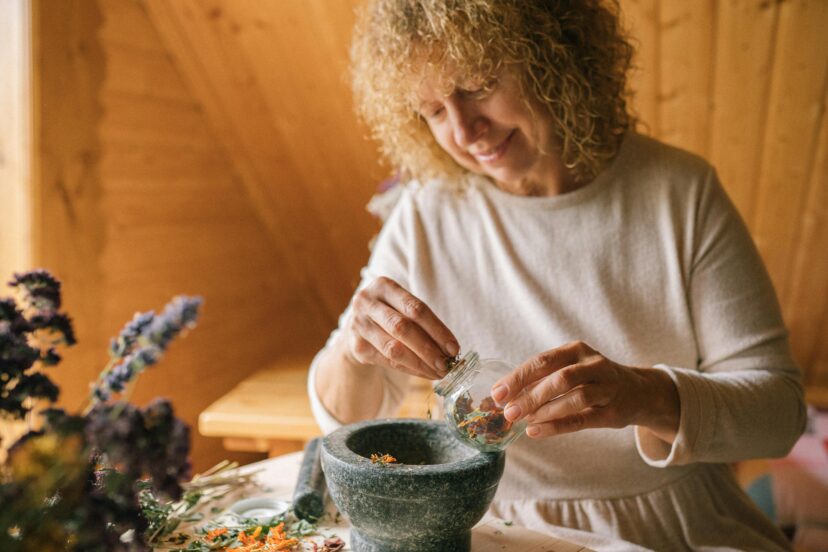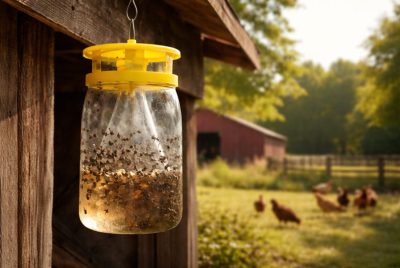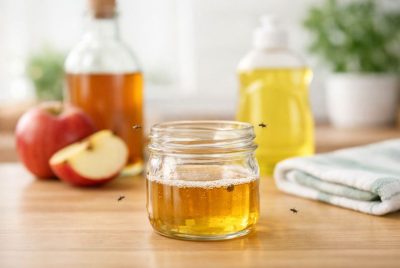How To Make Homemade Herbal Remedies For Common Ailments
We may earn a commission for purchases made using our links. Please see our disclosure to learn more.
Learning how to make your own herbal cures can be powerful, especially if you want to live self-sufficiently. Your garden or pantry may include a natural remedy for headaches, colds, cuts, or even stress. Homesteaders are reviving the centuries-old practice of herbalism for everyday health. Furthermore, it does not imply a rejection of modern medicine. It all comes down to using natural medicines, cutting back on the use of artificial therapies, and saving money. Let’s look at some supplies and herbs you can use to prepare homemade herbal remedies.
Essential Tools and Ingredients to Get Started
Before you brew your first batch of tea or tincture, gather these essentials:
- Glass jars with lids (mason jars work well)
- Cheesecloth or muslin bags for straining
- Dark dropper bottles to store tinctures or oils
- Mortar and pestle or herb grinder
- Measuring spoons and a digital scale
- Carrier oils like olive oil or coconut oil
- High-proof alcohol (such as vodka) for tinctures
- Organic dried herbs (or fresh from your garden)
Herbal starter kits and bulk supplies are available online or from reputable suppliers such as Starwest Botanicals and Mountain Rose Herbs. Reading classic homesteading books can also help you understand the basic concepts of natural living and DIY wellness if you’re new to this world.
7 Effective Homemade Herbal Remedies You Can Make Today
1. Chamomile Tea for Sleep and Anxiety
Chamomile’s calming compounds act as mild sedatives and digestive relaxants. To make a simple tea, steep 1 tablespoon of dried chamomile flowers in hot water for 10 minutes. Add a spoonful of raw honey for a cozy, soothing nightcap.
✅ Best for: Insomnia, stress, digestion
✅ Tip: Drink 30 minutes before bed for best results.
2. Ginger Honey Syrup for Colds and Sore Throat
Peel and slice a thumb-sized piece of fresh ginger. Simmer in water for 20 minutes, then strain and stir in equal parts raw honey. Once cool, store in a clean glass jar in the fridge.
✅ Best for: Sore throat, cough, inflammation
✅ Tip: Take 1 tablespoon 2–3 times daily at the first sign of symptoms.
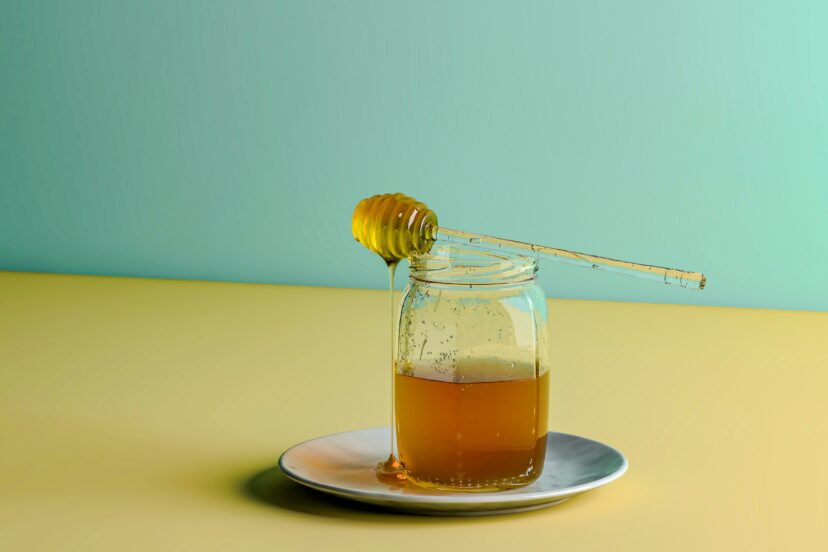
3. Peppermint Oil for Headaches
The menthol in peppermint oil relaxes tense muscles and boosts blood flow. Mix a few drops with a carrier oil like coconut oil, then gently massage into your temples or the back of your neck.
✅ Best for: Tension headaches, migraines
✅ Tip: Inhale deeply for an added aromatherapy benefit.
4. Calendula Salve for Cuts and Scrapes
Calendula is a powerful skin soother. To make a salve, infuse dried calendula petals in olive oil for a few weeks. Strain, then combine the oil with melted beeswax to form a thick balm.
✅ Best for: Minor cuts, scrapes, diaper rash
✅ Tip: Store in a small tin and carry in your bag for emergencies.
5. Dandelion Tincture for Digestion
Chop fresh dandelion root and steep it in high-proof alcohol (like vodka) in a sealed glass jar for 2–4 weeks. Shake daily. Once done, strain and store in a dark glass bottle.
✅ Best for: Bloating, sluggish digestion
✅ Tip: Start with 10–20 drops diluted in water before meals.
6. Elderberry Syrup for Immunity
Simmer dried elderberries with cinnamon, cloves, and a bit of water. Once reduced, strain and mix with raw honey. Let it cool before bottling.
✅ Best for: Immune support, colds, flu
✅ Tip: Take 1 teaspoon daily during flu season (children can take half).
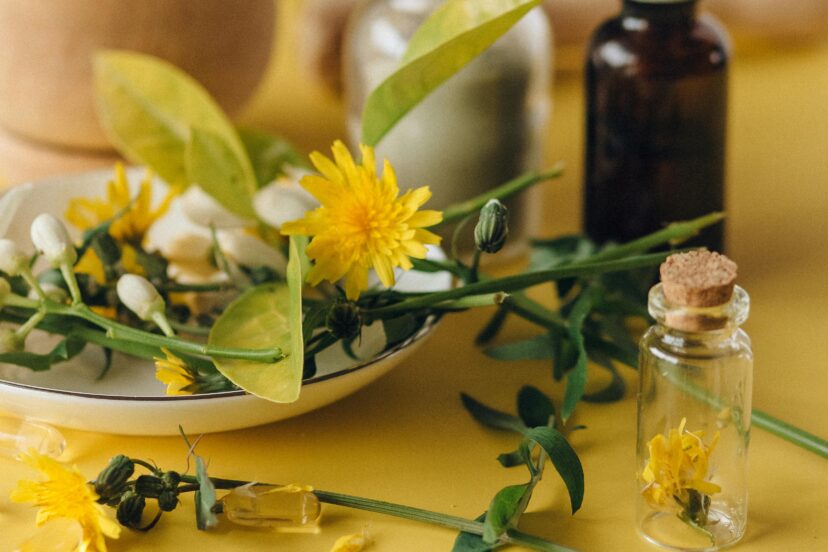
7. Lavender Compress for Minor Burns
Brew a strong lavender tea, let it cool, then soak a soft cloth in the tea and apply to burns or sunburns. Lavender helps reduce inflammation and promotes healing.
✅ Best for: Minor kitchen burns, sunburn
✅ Tip: Pair with aloe vera for extra relief.
Recommended Products to Make Herbal Remedies Easier
Whether you’re just getting started or looking to upgrade your setup, these Amazon products can make home herbalism easier:
- Organic Dried Chamomile Flowers
- Dark Amber Glass Dropper Bottles
- Beeswax Pellets for Salves
- Mortar and Pestle Herb Grinder Set
- Organic Lavender Buds
These tools help you craft everything from tinctures to teas with precision and safety.
Scientific Evidence Supporting Chamomile for Better Sleep
Chamomile has long been cherished for its relaxing properties—and now research confirms it. A randomized controlled trial found that older adults who consumed chamomile extract experienced significantly improved sleep quality. Similarly, a 2024 review published in MDPI concluded chamomile is effective for managing insomnia, anxiety, and even gastrointestinal discomfort. These findings affirm what herbalists have practiced for generations—nature can be a gentle, effective healer.
Tips for Storing and Using Your Remedies Safely
To ensure your remedies are effective and safe to use:
- Label everything with the herb name and preparation date.
- Store oils, salves, and tinctures in cool, dark places.
- Use clean tools and containers to avoid contamination.
- Do a skin patch test before using a new remedy externally.
- If you are pregnant, nursing, or on medication, consult a professional first.
Remember: just because it’s natural doesn’t mean it’s harmless. Always research thoroughly before trying a new herb.
Final Thoughts
Making your own homemade herbal remedies is more than just a frugal alternative—it’s a step toward independence, intentional living, and deeper connection with the land. Whether you’re sipping calming chamomile tea after a long day or rubbing lavender salve on a sunburn, you’re tuning in to rhythms older than medicine itself.
As homesteaders, this practice offers something deeper: trust in your hands, your garden, and your knowledge. So go ahead—plant that peppermint, dry those dandelions, and embrace the quiet magic of homemade healing.
FAQs
1. Are homemade herbal remedies safe?
Yes, most are safe when made with quality ingredients and used responsibly. Always research each herb and speak with a professional when in doubt.
2. Can I use fresh herbs instead of dried ones?
You can! Just remember fresh herbs contain more water, so they may spoil faster or alter a recipe’s proportions. Adjust accordingly.
3. How long do tinctures and syrups last?
When stored correctly in a cool, dark place, tinctures usually remain effective for up to 1 to 2 years. Syrups (with honey) should be refrigerated and used within 2–3 months.
4. Where can I find reliable herbs and supplies?
Reputable sources include Mountain Rose Herbs, Starwest Botanicals, and trusted local herb shops. Be sure your herbs are organic and pesticide-free.
5. Can kids use herbal remedies too?
Some remedies like elderberry syrup or chamomile tea are gentle enough for children. Always adjust doses by age and consult a pediatric herbalist if unsure.

